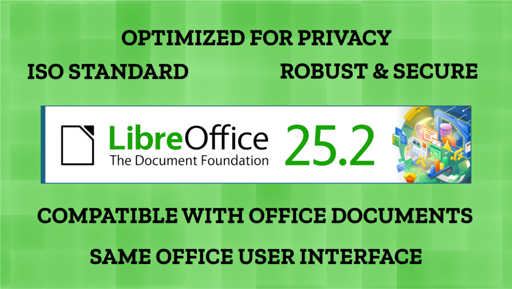- 16 Posts
- 7 Comments

 9·1 day ago
9·1 day agodeleted by creator

 131·1 day ago
131·1 day agoBill Gates is probably one of the best billionaires. But it is very important that we all remember how he ended up with $200 billion dollars. Predatory monopolistic behavior.
Everyone should carefully read this 1999 article that I found in the archives of the New York Times.
How Microsoft Sought Friends In Washington - Nov. 7, 1999
Twenty months ago, Representative Billy Tauzin walked into the office of William H. Gates 3rd, chairman of Microsoft, bearing a 10 inch by 10 inch white box and a warning.
Mr. Tauzin, Republican of Louisiana and the chairman of a subcommittee that oversees the telecommunications industry, placed the box on Mr. Gates’s desk. Inside was a lemon meringue pie, a reminder of another pie that had been thrown in Mr. Gates’s face several weeks earlier by a Microsoft critic. The message to Mr. Gates, the richest man on earth and the leader of the digital world, was blunt: You need to make friends in Washington.
Mr. Gates apparently took Mr. Tauzin’s message to heart – with a vengeance. While Microsoft and its executives contributed a relatively modest $60,000 to Republican Party committees in 1997, those contributions shot up to $470,000 as part of the company’s overall political contribution of $1.3 million in 1998. The 1998 figure included donations to political candidates, with the bulk of the money going to Republicans. This year, the company’s contributions of nearly $600,000 have been more evenly divided between Republicans and Democrats, according to Federal Election Commission records.
Mr. Gates and his top lieutenants have made dozens of trips to Washington, cultivating powerful figures in both parties and hiring some of the city’s priciest lobbyists. Microsoft has retained Haley Barbour, former chairman of the Republican National Committee; Vic Fazio, a former Democratic congressman from California; Vin Weber, a former Republican congressman from Minnesota; Tom Downey, a former Democratic congressman from New York and a close friend of Vice President Al Gore; Mark Fabiani, former special counsel to the Clinton White House; and Kerry Knott, former chief of staff to Representative Dick Armey of Texas, the House majority leader.
Microsoft has also given hundreds of thousands of dollars to research groups, trade groups, polling operations, public relations concerns and grass-roots organizations. It has financed op-ed pieces and full-page newspaper advertisements, and mounted a lobbying effort against an increase in the Justice Department’s antitrust enforcement budget.
In June, Mr. Gates met for lunch with the Republican leaders of the House in the small whip’s room off the House chamber. They discussed Microsoft’s public policy agenda, ranging from exports of encryption software to Internet privacy to antitrust actions, said several participants at the meeting. Mr. Knott, now a top official in Microsoft’s Washington office, attended the session.
Eight days later, Mr. Armey introduced what he called his ‘‘e-Contract,’’ a list of Republican legislative initiatives that pointedly adopted Microsoft’s view of the role of government antitrust actions, like the one that now threatens to dismantle Microsoft.
Microsoft has hired as two former heads of the Justice Department’s antitrust division and a dozen or more prominent academics and writers, who publish articles and give interviews advocating Microsoft’s position.
Among them are Charles Rule, director of the Justice Department’s antitrust division in the Bush administration, and Paul Rothstein, a professor of law at Georgetown University and frequent network and cable-television commentator.
Another Microsoft move on Capitol Hill drew criticism for heavy-handedness. Its lobbying to trim the antitrust division’s budget brought a flurry of editorial condemnation. The Washington Post said Microsoft’s actions were ‘‘a comical caricature’’ of a company trying to bully its way through Washington.‘’
One Justice Department official said, ‘‘Even the mob doesn’t try to whack a prosecutor during a trial.’’

 11·1 day ago
11·1 day agodeleted by creator

 9·1 day ago
9·1 day agoUpdate.
I was searching for information about this case. Well… things changed fast 🤦
Paul Walczak just received a Presidential Pardon.
https://www.justice.gov/pardon/media/1397931/dl?inline
https://www.nytimes.com/2025/04/25/us/politics/trump-pardon-walczak-ashley-biden-diary.html
As much as I dislike Windows and smartphones the current nature of the world is that that are all necessities for most people.
I was told Linux is incredibly difficult to use, Windows is so much safer/better.
Honestly, I used to believe this, until I installed Linux. Well, I was just lied to. I very easily installed everything that I need. My Linux distro works just fine. I can even play my favorite games. To this day, I haven’t moved back to Windows. The Microsoft empire is based on aggressive lobbying and advertising, not on superior product quality.
Billionaire-owned multinational corporations spend hundreds of billions of dollars a year on advertising. They have entire teams that study consumer psychology. The goal of advertising is to undermine human rationality.
If humans were purely rational, why would they waste billions on advertising ?
They would just say “here are our products. Here are our prices. Buy them if you want to”.
Smartphones are also the easiest way to access your banking services with plenty of banks offering online banking now.
I don’t need to access my banking services 24/7. I have cash and a debit card that does the job. If I need to see my bank account, I just use my computer.
What you need and what you think you need are not the same things.

 107·2 days ago
107·2 days agoWonderful news. That means less electronic junk to recycle, much less pollution.
I’m actually quiet happy to own a dumbphone and no smartwatch. Having a powerful Linux laptop is great, but I came to the conclusion humans need low-tech for their mental health. Not having tech around me helps me focus, go on nice walks, write what’s on my mind and read books. I just feel happier.
If you aren’t careful, the things you own can end up owning you.

 14·1 day ago
14·1 day ago“Extra Verification steps”
I know how large social media companies operate. This is all about increasing the value of Reddit users to advertisers. The goal is to have a more accurate user database to sell them.
Zuckerberg literally brags to corporations about how good their data is on users:
https://www.facebook.com/business/ads/performance-marketing
Here, Zuck tells companies that Instagram can easily manipulate users into purchasing shit:
https://www.facebook.com/business/instagram/instagram-reels
Always be wary of anything available for free.
There are some quality exceptions (CBC, VLC, The Guardian, Linux, PBS, Wikipedia, Lemmy, ProPublica) but, by and large, “free” means they don’t care about you. You are just a commodity that they sell.
Facebook, Google, X, Reddit, Instagram… Their goal is keep people hooked to their smartphone. The recipe is very simple. You give them small dopamine hits (likes, upvotes) followed by a small break with outrageous content/emotional content. Then another dopamine hit.
Keep them hooked, gather their data, and sell them ads.
The people who know that best are former top executives :
https://www.theguardian.com/technology/2017/oct/05/smartphone-addiction-silicon-valley-dystopia
https://www.nytimes.com/2019/03/01/business/addictive-technology.html
https://www.today.com/parents/teens/facebook-whistleblower-frances-haugen-rcna15256

 1·2 days ago
1·2 days agoThere is a guy named Cal Newport.
He graduated from the Massachusetts Institute of Technology with the highest grades.
He is now a tenured Professor of Computer Science.
Cal Newport says using a pen and paper is incredibly important. It helps him focus.
He also avoid social media. I highly recommended his book “Digital Minimalism”.

 271·14 days ago
271·14 days agoI’m not British. There are many things that I admire about the United Kingdom.
This is the nation that produced Agatha Christie, Jane Austen, George Orwell, JK Rowling, The Beatles, The Rolling Stones, Elton John, David Attenborough. Led Zeppelin, Aldous Huxley, JRR Tolkien.
But the one thing that disturbs me is the unbelievable level of corruption.
In Britain, political parties can raise millions of pounds from one single individual. Private corporations, including foreign corporations, are allowed to give large amounts of money to political parties. Several members of the UK parliament currently work as consultants and lawyers for large corporations such as Thames Water or HSBC. This is all legal.
Compare this to France.
In France, no individual is allowed to give more than 7000 pounds to a political party. Corporations are banned from giving money to political parties. Members of parliament are all banned from having second-jobs. And if you break these rules, an independent agency (HATVP) has the power to criminally prosecute you.
Why did France pass these tough rules ? Huge corruption scandals
France had one President (Nicolas Sarkozy) sell access to his donors
When the French media revealed these scandals, the French political class was so embarrassed that it actually forced them to take action.
The British had similar corruption scandals.
David Cameron was caught selling access to Downing Street in exchange of money:
https://www.theguardian.com/politics/2012/mar/26/david-cameron-private-dinners-tory-donors
Boris Johnson was also caught selling access to Downing Street in exchange of money:
https://www.ft.com/content/8c6041ff-a223-43e9-9e45-53c3f7cf47f7
Yet the British political class did… absolutely nothing !!! No reform…
Similar scandals have led to completely different legislative outcomes.
In Britain, the rot runs deep.












deleted by creator